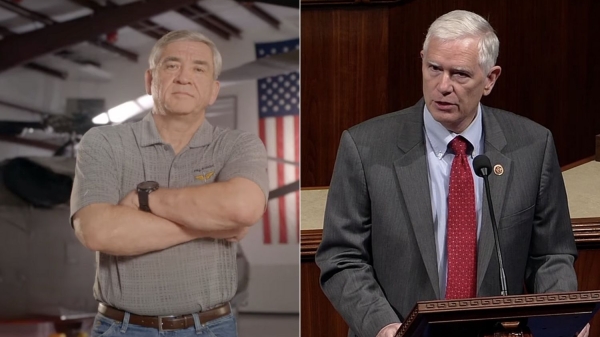By Brandon Moseley
Alabama Political Reporter
Tuesday, October 27 Speaker of the House of Representatives John Boehner (R from Ohio) and President Barack H. Obama (D) announced that they had reached an agreement in principle on the budget and raising the debt ceiling to prevent a government shutdown. U.S. Senator Jeff Sessions (R from Alabama) issued a written statement objecting to the terms of the deal.
Senator Sessions said, “Once again, a massive deal, crafted in secret, unveiled at the 11th hour, is being rushed through Congress under threat of panic. Once again, we have waited until an artificial deadline to force through that which our voters oppose.”
Sen. Sessions warned, “At its core, this deal with President Obama does two things: First, it lifts federal spending caps for the next two years – including a $40 billion increase in spending on the federal bureaucracy. Second, it waives the federal debt limit through March of 2017, allowing for approximately $1.5 trillion to be added to the debt – ensuring no further conversation about our debt course or any corresponding action to alter it.”
Sen. Sessions said, “It appears this deal is built on the same principles as the Ryan-Murray budget deal from 2013. It exchanges instant increases in federal spending for distant savings, as much two decades down the road, that are likely to never materialize. It funds increased spending through increased revenues – violating a core budget principle by collecting more money to expand an already too-large federal bureaucracy. And it trades the termination of today’s spending limits for the promise of new spending limits ten years from now.”
The conservation Alabama Senator wrote, “The spending caps in law today were pledged as part of the 2011 Budget Control Act agreement to lift the debt ceiling by $2.1 trillion. It represented a bipartisan commitment to cap spending at a fixed amount. This deal shatters that commitment by spending $80 billion more than we promised over the next 2 years. The deal also uses a common gimmick where alleged savings in an entitlement program are used to boost unrelated spending in the federal bureaucracy. Any savings found to entitlement programs faced with insolvency must be used to shore up those programs – not to surge spending somewhere else. Yet this deal claims illusory savings from Disability Insurance and increased pension insurance fees in order to boost bureaucratic budgets. Perhaps even worse, the deal attempts to stave off the shortfall in fraud-ridden Social Security Disability by plundering from the Social Security Trust Fund for retirees. One hundred and fifty billion dollars in funds will be siphoned from Americans’ payroll retirement contributions and redirected to the mismanaged disability program.”
Sen. Sessions said, “This deal cements the unacceptable precedent that every dollar of increased defense spending should be matched with a dollar of increased non-defense spending. This is upside-down: if an emergency requires more defense spending, common sense says we should seek to identify reductions, not hikes, to spending in non-defense accounts. The people want an end to wasteful Washington spending. Lifting the budget caps and raising the debt ceiling through 2017 only ensures that our ineffective bureaucracy continues its wasteful ways while momentum in Washington for debt reduction stalls out. It eliminates a powerful opportunity to advance the case for financial discipline.” “Republicans should insist that any vote on spending caps or the debt ceiling be delayed until the House has chosen a new Speaker – and until there has been a full conversation among our conference and, most importantly, our voters. There is no urgency to pass a 2-year deal. GOP voters are entitled to have their representatives represent them – not act as opposing counsel, urging them to capitulate to the President’s demands. Whether it’s spending, debt, crime, immigration or trade it is time for us to start fighting for what our voters want – instead of demeaning their just concerns about the future of our country.”
At his last press conference with GOP leaders, Speaker John Boehner touted the Bipartisan Budget Act, “This agreement will protect our economy and reduces the deficit. It secures more long-term entitlement reforms. It strengthens our national security and brings more certainty to next year’s appropriations process. It protects more Americans from ObamaCare and rejects all of the tax increases as proposed by the administration. The agreement isn’t perfect by any means, but the alternative was a ‘clean’ debt ceiling increase without any additional support for our troops and without any entitlement reforms. So this is a good deal for our troops, for taxpayers, and for the American people.”
Jasmine Tucker with the National Priorities Project (NPP) said, “Sequestration is a terrible way to budget as it makes cuts without reference to Americans’ priorities. Raising the budget caps for domestic discretionary spending is a win for most Americans who say they want more domestic investment in areas such as job training, the economy and our safety net. However, we are distressed that the deal includes more padding for the Pentagon’s slush fund, a tactic that exempts the Pentagon from budget caps while domestic programs continue to struggle.”
The deal would also suspend the debt limit until March 2017 and make changes to Social Security and Medicare. The measure still must pass Congress by November 3, when the government reaches the debt ceiling forcing a government shutdown.
Senator Sessions is a senior member of the Senate Budget Committee.





















































